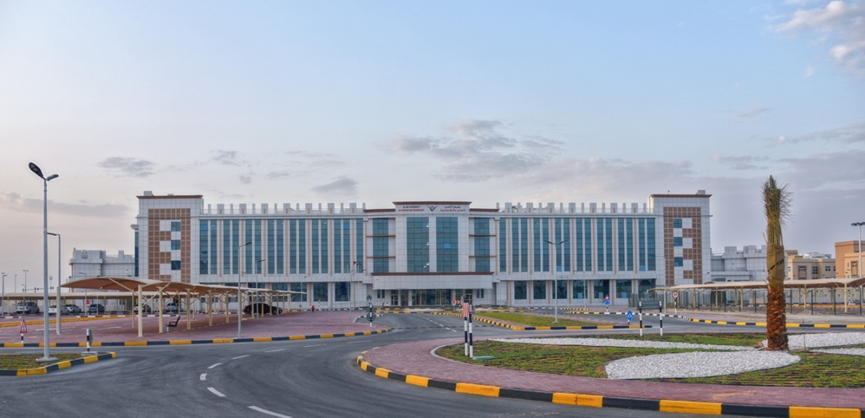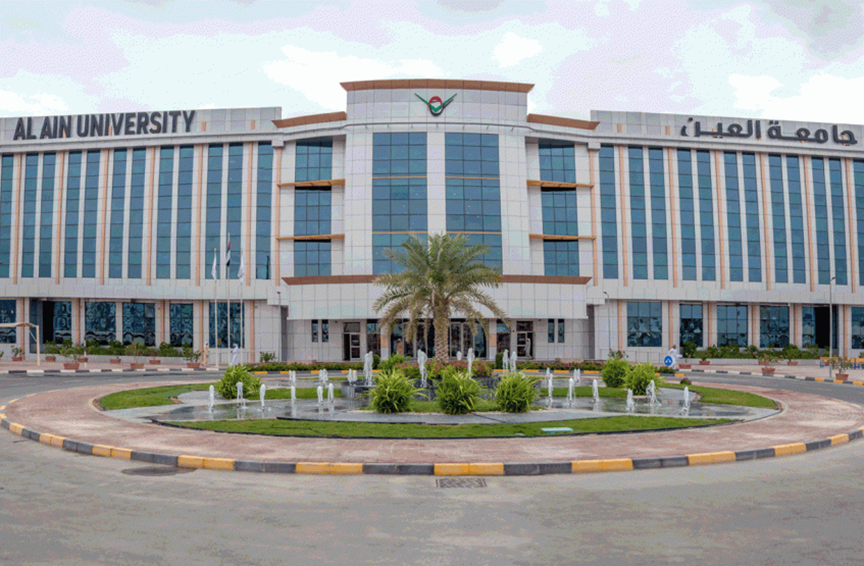Workshop Title:
Mastering the Depths of Deep Learning: A Comprehensive Workshop
Date:
January 8th, 2024 (GMT+4)
Organizer:
Al Ain University
Keywords:
- Deep Learning
- Neural Networks
- Activation Functions
- Backpropagation
- Optimization Algorithms
- Regularization Techniques
- Convolutional Neural Networks (CNNs)
- Recurrent Neural Networks (RNNs)
- Generative Adversarial Networks (GANs)
- Transfer Learning
- Pretrained Models
- Hyperparameter Tuning
- Model Evaluation
- Ethical Considerations
- Bias and Fairness
- Interpretability and Explainability
- Optimization Algorithms (SGD, Adam, RMSprop)
- Fine-tuning Models
- Training Data
- Evaluation Metrics (Accuracy, Precision, Recall, F1-score, AUC-ROC)
- Deep Learning Libraries
- Hyperparameters
- Model Performance
Workshop Chair:
Personal Bio:
Dr. Yazeed Ghadi, Senior Member, IEEE, is a distinguished researcher and academic in the field of computer engineering and computer science. He earned his Ph.D. degree from Queensland University, where his groundbreaking research on developing hybrid plasmonic-photonic on-chip biochemical sensors earned him the prestigious Sigma Xi Best Ph.D. Thesis Award.
Currently serving as an Associate Professor of Computer Science at Al Ain University, Dr. Yazeed brings a wealth of expertise and experience to his role. Prior to joining Al Ain University, he worked as a Postdoctoral Researcher at The University of Queensland, further expanding his knowledge and contributing to cutting-edge research in his field.
Dr. Yazedd has an impressive publication record, with over 100+ peer-reviewed journals and conference papers to his credit. His research contributions extend beyond publications, as he holds three pending patents, showcasing his innovative thinking and commitment to advancing technology.
With a focus on developing novel electro-acoustic-optic neural interfaces for large-scale high-resolution electrophysiology and distributed optogenetic stimulation, Dr. Yazeed's current research interests align with the forefront of scientific exploration. His groundbreaking work has earned him recognition through various awards, underscoring his exceptional contributions to the field of electrical and computer engineering.
In summary, Dr. Yazeed is an esteemed professional who has made significant contributions to academia and research. His dedication, expertise, and commitment to advancing knowledge make him a valuable asset in the field of electrical and computer engineering.
Workshop Description:
Background:
Deep learning has emerged as a revolutionary field within artificial intelligence (AI), enabling machines to learn and make complex decisions by modeling data through multiple layers of neural networks. It has achieved remarkable success in various domains, including computer vision, natural language processing, speech recognition, and recommendation systems. As organizations across industries recognize the transformative potential of deep learning, there is a growing demand for professionals with deep learning expertise. However, mastering deep learning techniques requires a solid understanding of the underlying principles, algorithms, and best practices. The "Mastering the Depths of Deep Learning: A Comprehensive Workshop" is designed to address this need by providing participants with a comprehensive and practical learning experience. The workshop is suitable for individuals with a basic understanding of machine learning and programming who want to enhance their skills in deep learning. The workshop instructors are experts in the field of deep learning and have hands-on experience in developing and deploying deep neural networks. They have a track record of successfully applying deep learning techniques in various domains and are dedicated to imparting their knowledge to workshop participants. The workshop content has been meticulously curated to cover both foundational and advanced topics in deep learning. It combines theoretical lectures, interactive coding sessions, and hands-on projects to ensure participants gain a deep understanding of the concepts and acquire practical skills. The workshop encourages active participation, collaboration, and peer learning, fostering a dynamic and engaging environment.
Participants will leave the workshop equipped with the knowledge, confidence, and resources to apply deep learning techniques effectively in their own projects and research. The workshop acts as a stepping stone for individuals seeking to unlock the full potential of deep learning and stay at the forefront of AI Advancement.
Goal / Rationale:
The goals of the workshop "Mastering the Depths of Deep Learning: A Comprehensive Workshop" are to provide participants with a thorough understanding of deep learning concepts and techniques. The workshop aims to equip attendees with the knowledge and skills needed to effectively apply deep learning methods to various real-world problems. Here are some specific goals that the workshop may focus on:
- 1- Understanding Deep Learning Fundamentals: The workshop aims to provide participants with a solid foundation in the principles and fundamentals of deep learning. This includes topics such as neural networks, activation functions, backpropagation, optimization algorithms, and regularization techniques.
- 2- Exploring Advanced Deep Learning Architectures: The workshop may cover various advanced deep learning architectures, such as convolutional neural networks (CNNs) for computer vision tasks, recurrent neural networks (RNNs) for sequence data, and generative adversarial networks (GANs) for generating new data.
- 3- Practical Implementation: The workshop will likely involve hands-on coding exercises and projects to help participants gain practical experience in implementing deep learning models. This could involve using popular deep learning frameworks such as TensorFlow or PyTorch.
- 4- Transfer Learning and Pretrained Models: Participants may learn how to leverage pretrained deep learning models and transfer learning techniques to solve problems with limited data or in different domains. This can save time and computational resources while achieving good performance.
- 5- Hyperparameter Tuning and Model Evaluation: The workshop may cover strategies for optimizing hyperparameters in deep learning models and evaluating their performance. This includes techniques like grid search, random search, and cross-validation.
- 6- Ethical Considerations and Best Practices: The workshop might address ethical considerations surrounding deep learning, including bias and fairness issues, privacy concerns, and responsible data handling practices. Participants may also learn about interpretability and explainability techniques to understand and trust deep learning models.
- 7- Industry Applications: The workshop may provide insights into various industry applications of deep learning, such as image recognition, natural language processing, recommender systems, and autonomous vehicles. Real-world case studies and examples may be discussed.
Overall, the goal of the workshop is to provide a comprehensive understanding of deep learning techniques, empower participants to apply them effectively, and stay updated with the latest advancements in the field.
Scope and Information for Participants:
The scope of the workshop "Mastering the Depths of Deep Learning: A Comprehensive Workshop" typically encompasses a wide range of topics related to deep learning. The workshop aims to provide participants with a comprehensive understanding of deep learning concepts, techniques, and applications. While the specific scope can vary depending on the workshop's duration and focus, here are some common areas that may be covered:
- 1- Deep Learning Fundamentals: The workshop will cover the foundational concepts of deep learning, including neural networks, activation functions, loss functions, gradient descent, and backpropagation. Participants will gain a solid understanding of how these elements work together to train deep learning models.
- 2- Deep Learning Architectures: Participants will explore various deep learning architectures used in different domains, such as convolutional neural networks (CNNs), recurrent neural networks (RNNs), and generative adversarial networks (GANs). They will learn about the structure, purpose, and applications of these architectures.
- 3- Deep Learning Algorithms and Optimization: The workshop will delve into optimization algorithms commonly used in deep learning, including stochastic gradient descent (SGD), Adam, and RMSprop. Participants will learn how to tune hyperparameters and apply optimization techniques to improve model training and performance.
- 4- Transfer Learning and Pretrained Models: The workshop will cover techniques for leveraging pretrained models and transfer learning to solve new tasks efficiently. Participants will learn how to adapt existing deep learning models to new problems and domains, saving time and computational resources.
- 5- Evaluation and Performance Metrics: Participants will learn how to assess and evaluate the performance of deep learning models using various evaluation metrics, such as accuracy, precision, recall, F1-score, and area under the ROC curve (AUC-ROC). They will understand how to interpret and analyze model performance.
- 6- Ethical Considerations and Best Practices: The workshop will address ethical considerations and best practices in deep learning. Participants will learn about issues related to bias, fairness, privacy, and responsible data handling. They will gain insights into the importance of ethical AI and methods for ensuring transparency and accountability.
- 7- Industry Applications and Case Studies: The workshop may provide real-world case studies and examples to demonstrate the application of deep learning in various industries, such as healthcare, finance, natural language processing, and computer vision. Participants will gain an understanding of how deep learning is being used to solve complex problems and drive innovation.
The workshop will provide participants with a comprehensive understanding of Deep Learning, its technologies, and its potential applications across various industries. It will equip them with the knowledge and skills necessary to evaluate, plan, and implement Deep Learning solutions in their respective organizations. Participants will gain practical insights, engage in interactive activities, and have the opportunity to connect with experts and peers in the field.
Venue:
Al Jimi, Near Al Ain Municipality, Al Ain - Abu Dhabi, UAE

Visa:
Visa and Emirates ID - The Official Portal of the UAE Government
In order to ensure the information is correct and up to date, there may be changes which we are not aware of. And different countries have different rules for the visa application. It is always a good idea to check the latest regulations in your country. This page just gives some general information of the visa application.
Do you need an entry permit/visa to enter the UAE?
GCC citizens do not need a visa to enter the UAE. Some of the other nationalities can obtain a visa on arrival while others need to apply for a visa in advance. Find out if you need a visa to enter the UAE.
Visa-free entry
Citizens of GCC countries do not require a visa or permit or to be sponsored by a national or resident in the UAE. They need to produce their GCC country passport or national ID card at the point of entry into the UAE.
Visa on arrival
30-day visa on arrival
Citizens of these countries (Dubai Visa Guide | Dubai Tourist Visa Requirements | Visit Dubai) do not require advance visa arrangements to enter the UAE and can obtain a visa upon arrival for 30 days with a 10-day grace period for extension.
90-day visa on arrival
Citizens of these countries (Dubai Visa Guide | Dubai Tourist Visa Requirements | Visit Dubai) do not require advance visa arrangements to enter the UAE and can obtain a visa upon arrival for 90 days:
Indian citizens
Indian citizens holding a normal passport and either
a visit visa issued by the USA or
a green card issued by the USA or
a residence visa issued by the UK or
a residence visa issued by the EU
can obtain a visa on arrival for a maximum stay of 14 days provided that the visas or the green card is valid for at least six months from the date of arrival into the UAE.
Read about the UAE visa requirements for non-US citizens.
Note: Passports must be valid for at least 6 months from the date of entry into the UAE. Lists of countries eligible for visa on arrival may vary from time to time; therefore, please check with the UAE embassy in your country before travelling to the UAE.
Related links
Visa on arrival- General Directorate of Residency and Foreigners Affairs Dubai
For more information, please contact:
The UAE Federal Authority for Identity and Citizenship, Customs and Port Security
Attend in person:
If you want to attend the workshop on-site, please email the Conference Committee: info@confspml.org.
